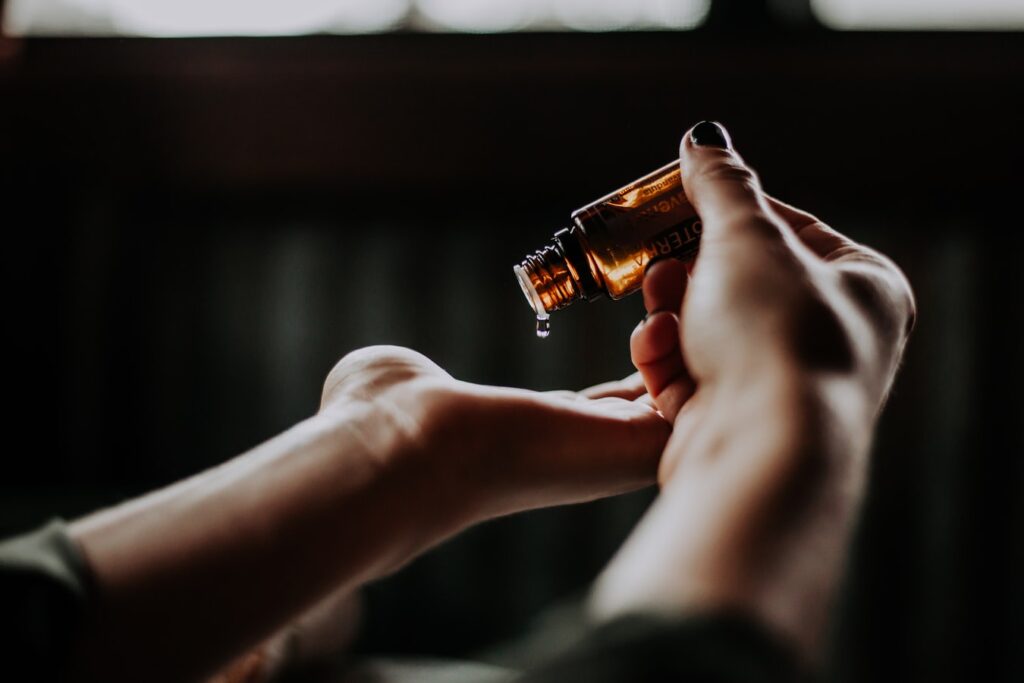Anosmia & Covid-19

Anosmia is a loss or change in sense of smell. It is estimated to affect 3-20% of the population and can be unpleasant as it changes how we taste and enjoy our meals.
There are several causes for it. Most often it is caused by a cold of flu, sinus infection, an allergy or nasal polyps. This is generally temporary and cause anomia though obstruction and inflammation of the mucosa.
Other causes include neurodegenerative disorders including Parkinson’s, Alzheimer’s diseases. Psychiatric disorders (depression, bipolar disorder, schizophrenia) and head injuries can also result in anosmia.
Before the Covid-19 pandemic evidence suggested that 19.1% of adults (80% in people over 75), experienced complete or partial loss of smell.
On May 18th 2020, Public Health England recognised anosmia as a symptom of Covid-19 in light of accumulating evidence, which showed a loss of smell in 55% of positive tested cases (95% confidence interval 38% to 70%).
Ear, Nose and Throat UK guidance is that Covid-19 should be assumed as the cause of the loss of smell in positive Covid cases. The good news is that 9 out of 10 patients with Covid-19 loss of sense of smell can expect a significant improvement within 4 weeks.
However, anosmia has also been found for some people, to be one of the ongoing physical effects of having had Covid-19. Research is still emerging regarding the cause and management of this condition in recovering patients.
Anosmia has the potential to impact both on the pleasure of eating and drinking and as such, may also impact negatively on the nutritional status of the person recovering from Covid. This is at a time when maintaining a protein rich, energy dense diet can be particularly important in helping with recovery.
Research in how to address this remains in the early stages however, ‘Olfactory training” is a self-management, safe strategy that involves a regular programme of using strong smells or essential oils to trigger the recovery of the sense of smell.

Further support is available from:
- Fifth Sense
- AbScent
- Online patient support groups
At the same time it may be useful, to use stronger seasonings, spices and herbs such as tarragon, rosemary, cumin, coriander, garlic, chilli to flavour your food more strongly.

Likewise, marinating meat in fruit juices or wine. Cooking it in stronger sauces such as curry or sweet and sour can all help stimulate recovering taste buds.
Whilst you are experiencing anosmia, remember to carefully check all “use by” dates on food and drink.
Most importantly, ensure smoke alarms are functioning and tested regularly and ideally ask other family members to be mindful of strange or new smells which arise in your home, whilst you are experiencing anosmia.
The information contained in this blog is intended as a general overview. Anyone who has concerns regarding anosmia post Covid infection and other reasons, should seek further guidance from their GP.
You can look at the NHS for more guidance on coronavirus, here https://www.nhs.uk/conditions/coronavirus-covid-19/
Blog content prepared by Sian Shepherd BSc Nutrition,
Specialist Gastroenterology Dietitian working within the NHS & private sectors.
References:
- https://www.nhs.uk/conditions/lost-or-changed-sense-smell/
- https://pubmed.ncbi.nlm.nih.gov/32215896/
- https://journals.sagepub.com/doi/full/10.1177/0194599820922992?casa_token=rBSPizTpongAAAAA%3AJRO43g2RHh0j6aXJCcYUPv_UJaMO3OVaiw3Z3m6xmbSCIkhUuVrPaf-15e6vDm6pU31VuqSC1ZkUJw
- https://pubmed.ncbi.nlm.nih.gov/28531300/
- https://www.ncbi.nlm.nih.gov/books/NBK482152/
Tags: AbScent, coronavirus, Covid, Covid-19, diet, dietitian, Fifth Sense, london dietitian, loss of taste, loss smell, nutrition, olfactory training, registered dietitian
0 Comment
Leave a Reply